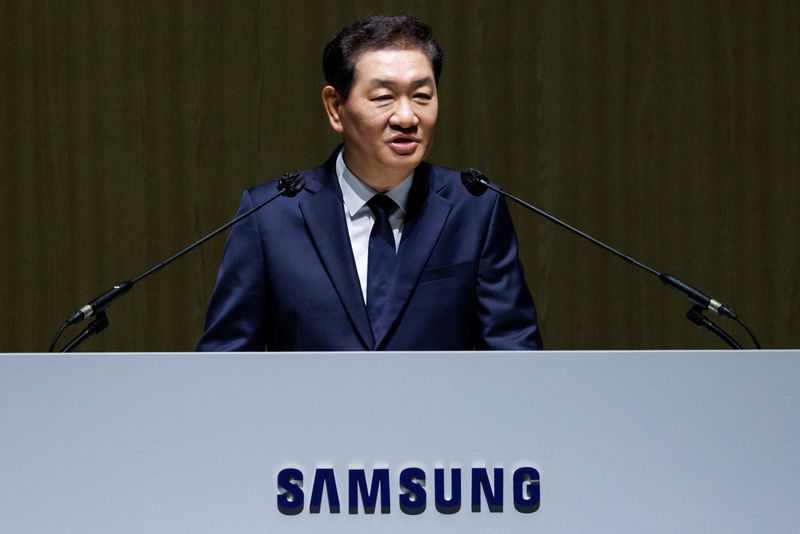Ex-Employees Label Tom Krause, Elon Musk's Treasury Overhaul Pick, a "Hatchet Man" for His Harsh Corporate Reforms
 |
| Former staff highlight Krause’s privatized approach to restructuring at Cloud Software Group and warn against his influence on government practices. |
Tom Krause, appointed by Elon Musk to implement sweeping reforms within the U.S. Treasury Department, has built a reputation for carrying out harsh business practices during his tenure in the private sector, according to interviews with several former employees at Cloud Software Group. As CEO of the Silicon Valley-based tech company, Krause led cost-cutting measures that demoralized staff, led to mass layoffs, and introduced policies that many viewed as draconian.
Krause, whose private-sector methods are now being applied to government agencies, oversaw the outsourcing of numerous jobs and the implementation of performance reviews that left employees constantly worried about their job security. Former employees describe a culture of fear where workers had to constantly prove their worth, with no job feeling truly secure. This new role at the U.S. Treasury Department, where he oversees a payment system managing over $5 trillion in federal funds, is causing concern among former colleagues, who fear that his privatized business approach may disrupt public service operations.
In interviews with ABC News, former Cloud Software Group employees recalled how under Krause's leadership, the company underwent layoffs for three consecutive years, in addition to instituting a strict return-to-office mandate. Former employees also noted the introduction of a rigorous performance rating system, where workers had to report directly to Krause with weekly updates, which created an atmosphere of constant pressure. These moves mirrored the type of reforms now taking place at Musk's Department of Government Efficiency (DOGE), which is attempting to impose private-sector management practices on federal agencies.
One former employee from Cloud Software Group recalled feeling so much pressure that she hid her pregnancy for fear of being targeted during layoffs. Another former manager shared the anxiety of filing performance reviews, knowing that workers might be dismissed as part of the next round of cost-cutting measures. These experiences underline the high stakes employees faced, with many finding it difficult to express concerns about their job security or workplace well-being, fearing that any signs of discontent could lead to being eliminated from the company.
Krause's tenure at Cloud Software Group began in 2022, following its acquisition of Citrix and subsequent merger with TIBCO Software. Soon after taking charge, he implemented measures designed to reduce company overhead, such as office closures and a stricter focus on in-office attendance. These decisions were coupled with cost-saving initiatives, including eliminating employee benefits like quarterly bonuses, which were once a standard perk.
For David Morgan, a former client support provider at Cloud Software Group, this restructuring meant the loss of his $16,000 annual bonuses and the cancellation of "thank you" days, an additional paid leave benefit. Morgan, an Air Force veteran with a disability, was notified just one day before he lost his job in January 2024, despite being assured of his job's security months earlier. This lack of empathy towards employees during layoffs raised red flags about Krause’s leadership approach, with Morgan lamenting how the firm’s cost-cutting practices were executed with little regard for personal relationships or dedication.
Additionally, the implementation of performance ratings on a scale from one to three added another layer of stress for employees, as managers were pressured to assign low scores to at least one team member, regardless of their actual performance. This became a significant source of dissatisfaction, particularly for managers who were required to label otherwise competent workers as low performers simply to comply with corporate mandates.
These aggressive cost-cutting policies, including the emphasis on harsh performance evaluations, were tactics that many former Cloud Software Group employees saw as resembling the same practices that have been introduced at the federal level under Musk’s leadership. For example, at the Department of Health and Human Services, similar ranking systems were put in place, with as much as 40% of employees being categorized as non-essential.
For many critics, Krause's transition to the Treasury Department raises significant concerns. Daniel Keum, a professor at Columbia Business School, described the approach as a blend of private-sector mentality with public-sector governance, warning that such methods could be disastrous for federal agencies. Krause’s business-minded restructuring tactics, when applied to essential government functions such as the Treasury's $5 trillion payment system, may endanger the very foundations of U.S. financial management, experts warn.
Although some former employees of Cloud Software Group have expressed support for Krause’s leadership style, viewing him as an effective business strategist with a keen eye for financial management, many are alarmed by the notion of these practices being applied to the federal government. Employees, like Roan, a former senior content designer at the company, voiced concern, stating that Krause’s "hatchet-man" tactics should have no place in public service, especially at such a critical institution like the Treasury.
Krause’s decision to continue his CEO role while also working at the Treasury Department has also drawn attention. Despite overseeing a large-scale financial system, Krause told employees that he remains committed to his duties at Cloud Software Group, adding to concerns that his attention may be divided, potentially compromising his ability to effectively manage both responsibilities. His attempt to integrate private-sector management practices into a public institution raises questions about the long-term impact of such policies on the integrity and stability of U.S. government operations.
In the wake of these concerns, some former employees at Cloud Software Group have spoken out against Krause's approach, claiming that his leadership tactics were designed more for short-term financial gains than for sustainable, employee-focused growth. These tensions, along with the growing alarm about his influence on public-sector governance, could play a pivotal role in shaping future debates over the blending of private and public management practices.



Comments
Post a Comment